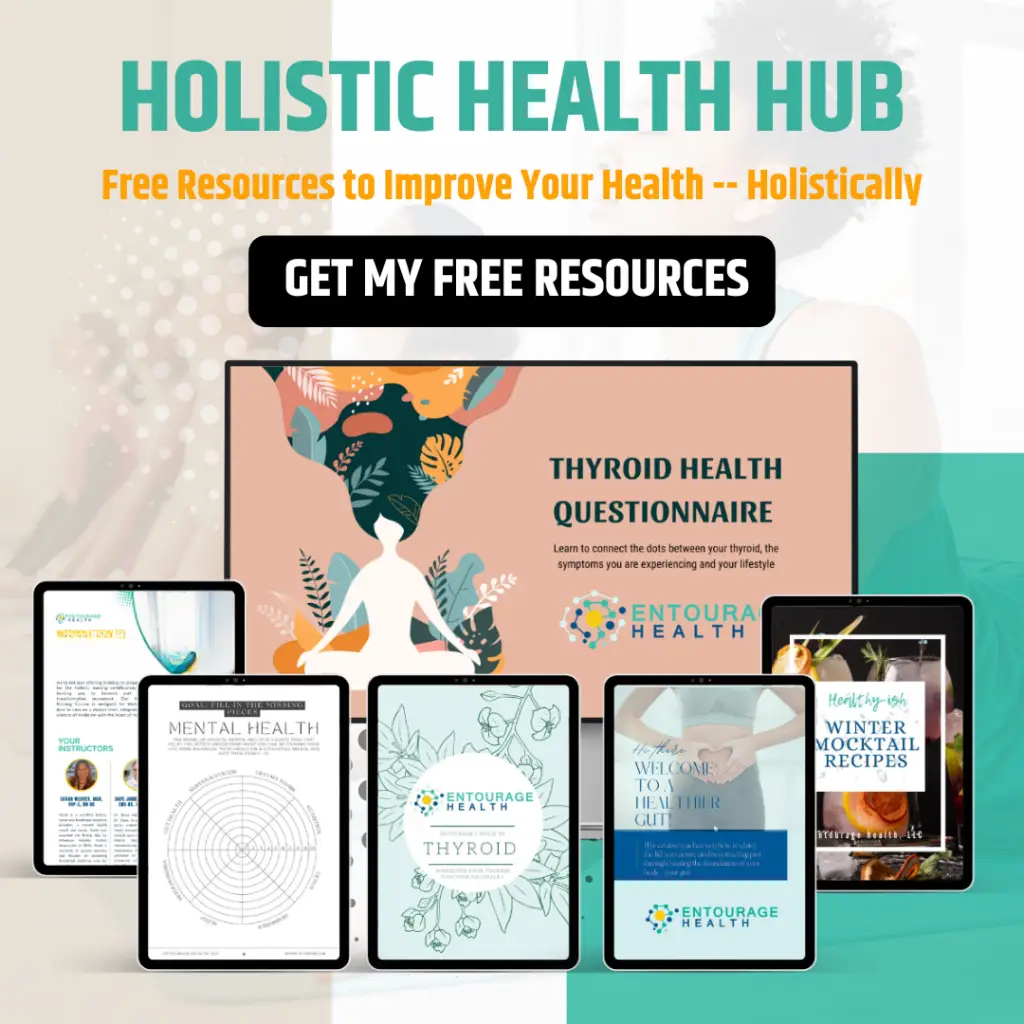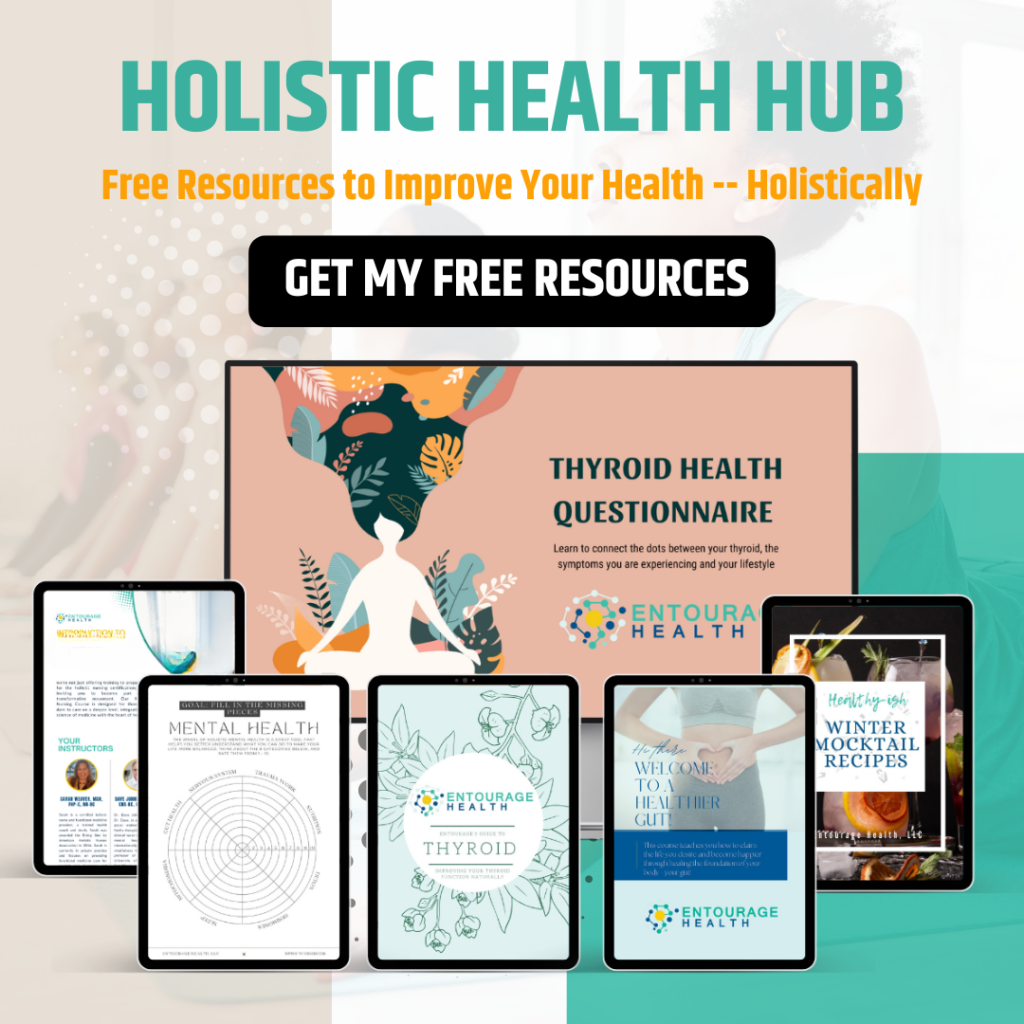If you’ve been diagnosed with hypothyroidism or Hashimoto’s, you’ve likely been told that thyroid medication is a key part of your treatment. But with so many options—synthetic, natural desiccated, and compounded medications—how do you know which one is right for you?
The truth is, not all thyroid medications work the same way for everyone. Each type has benefits and drawbacks, and finding the best fit often requires comprehensive testing and a functional medicine approach.
In this article, we’ll break down the three main types of thyroid medication, their pros and cons, and why proper testing is essential to optimize your thyroid health.
Synthetic Thyroid Medications (Levothyroxine, Synthroid, Tirosint)
What It Is:
Synthetic thyroid medications, such as Levothyroxine (Synthroid, Tirosint, Levoxyl, Unithroid), contain only T4, an inactive form of thyroid hormone that your body must convert into T3, the active form.
Pros:
✅ Widely Available & Affordable: Covered by most insurance plans and available in generic forms.
✅ Stable & Consistent Dosing: Manufactured with standardized, consistent dosages.
✅ Well-Tolerated by Many Patients: Some people do well on synthetic T4 alone.
Cons:
❌ Relies on Your Body’s Ability to Convert T4 to T3: If you have issues with conversion (due to stress, inflammation, or nutrient deficiencies), this medication alone may not be enough.
❌ Can Still Leave You Symptomatic: Many patients continue to experience fatigue, brain fog, weight gain, and depression even with “normal” TSH levels.
❌ Contains Fillers & Dyes: Some formulations contain additives that may cause sensitivities.
🔍 Best for: People with good T4-to-T3 conversion and no sensitivities to synthetic ingredients.
Natural Desiccated Thyroid (NDT) – NP Thyroid, Armour, Nature-Throid
NDT medications are derived from the thyroid glands of pigs (porcine-derived) and contain a natural blend of T4 and T3, plus small amounts of T2 and other thyroid hormones.
Pros:
✅ Contains Both T4 & T3: This can be beneficial for those who don’t convert T4 to T3 efficiently.
✅ Some Patients Feel Better on NDT: Many report better energy, weight management, and mental clarity.
✅ More Natural Approach: Some prefer NDT because it mimics the body’s natural thyroid hormone production.
Cons:
❌ Inconsistencies in Dosages: Since it’s derived from animals, potency can vary slightly between batches.
❌ Not Always Covered by Insurance: Can be more expensive out-of-pocket.
❌ Potential Supply Issues: Some brands, like Nature-Throid, have had shortages in recent years.
🔍 Best for: Patients who need both T4 & T3 and prefer a more natural hormone replacement option.
Compounded Thyroid Medications
What It Is:
Compounded thyroid medications are custom formulations made by specialty pharmacies to provide a precise balance of T4 and T3 without fillers, allergens, or unnecessary additives. It takes a specially trained healthcare provider to prescribe these medications. And you want to ensure that you are getting this from a reputable compounding pharmacy. I like to use Medicine Chest for my Indiana clients and Abrams Royal for my Texas people. Both of these pharmacies adhere to high standards and will ship medications within their respective state.
Pros:
✅ Completely Customizable: You and your healthcare provider can determine the exact T4-to-T3 ratio for your needs.
✅ No Fillers or Allergens: Great for those with sensitivities to dyes, gluten, or synthetic ingredients.
✅ Slow-Release Option Available: Helps some patients avoid the energy spikes and crashes that can come with T3-containing medications.
Cons:
❌ Not Covered by Insurance: Patients must pay out-of-pocket, and it can be costly.
❌ Requires a Compounding Pharmacy: Not available at regular pharmacies, so accessibility may be limited.
❌ Quality Control Varies: Potency and effectiveness depend on the quality of the compounding pharmacy.
🔍 Best for: Patients who need a personalized medication approach or have sensitivities to standard thyroid medications.
The Importance of Comprehensive Thyroid Testing
Why TSH Alone Isn’t Enough
Most conventional doctors rely solely on TSH (thyroid-stimulating hormone) to diagnose and monitor thyroid conditions. While important, TSH doesn’t reveal the full picture.
🧪 Essential Thyroid Panel Includes:
- TSH – Only measures pituitary signal to the thyroid
- Free T4 & Free T3 – Measures available thyroid hormone
- Reverse T3 (rT3) – Can block T3’s effect in the body under stress
- Thyroid Antibodies (TPO, TG) – Indicates autoimmune thyroid conditions like Hashimoto’s
But even a full thyroid panel only scratches the surface. At Entourage Functional Medicine, we also assess:

1. Nutrient Testing
Many key nutrients play critical roles in thyroid hormone production and conversion:
- Iodine – Essential for thyroid hormone synthesis
- Selenium – Converts T4 to T3 and reduces antibodies
- Zinc, Iron, Magnesium, and Vitamin D – Support hormone function and immune regulation
A deficiency in even one of these can lead to thyroid dysfunction.
2. Gut Health Testing
An imbalanced gut microbiome can:
- Interfere with hormone conversion
- Trigger systemic inflammation
- Contribute to autoimmune thyroid disease (like Hashimoto’s)
We use comprehensive stool testing to evaluate for leaky gut, dysbiosis, parasites, and inflammation.
3. Mold & Environmental Toxicity Testing
Environmental exposures such as mold, heavy metals, and endocrine-disrupting chemicals (like BPA) can impair thyroid function and worsen autoimmunity.
- Mycotoxins from mold suppress thyroid hormone
- Toxins may trigger or flare Hashimoto’s
We offer mycotoxin testing and toxin panels when exposure is suspected.
4. Chronic Infections & Viruses
Chronic infections such as EBV (Epstein-Barr virus) and other stealth infections can contribute to:
- Immune dysregulation
- Inflammation in the thyroid
- Persistent fatigue and flares
Testing for viral reactivation or latent infections helps guide immune support and treatment.
Conclusion: Personalized Treatment Starts With Proper Testing
Thyroid medications—whether synthetic, NDT, or compounded—can be life-changing when used correctly. But the key is understanding what your body truly needs.
Functional medicine doesn’t just treat symptoms—it seeks the root cause of why your thyroid isn’t functioning optimally. This includes advanced lab testing to evaluate hormone levels, nutrient status, gut health, toxin exposure, and immune function.
🎓 Ready to Learn More?
Grab my free thyroid guide from the Holistic Health Hub.
Join me, Sarah Weaver, MSN, FNP-C, HN-BC, IFMCP, for a FREE live masterclass on:
🗓️ April 2, 2025 at 8PM EST
💻 Thyroid Health Masterclass: Low Thyroid & Hashimoto’s
🎯 Discover how to interpret your labs, choose the right medication, and explore true root-cause healing.





